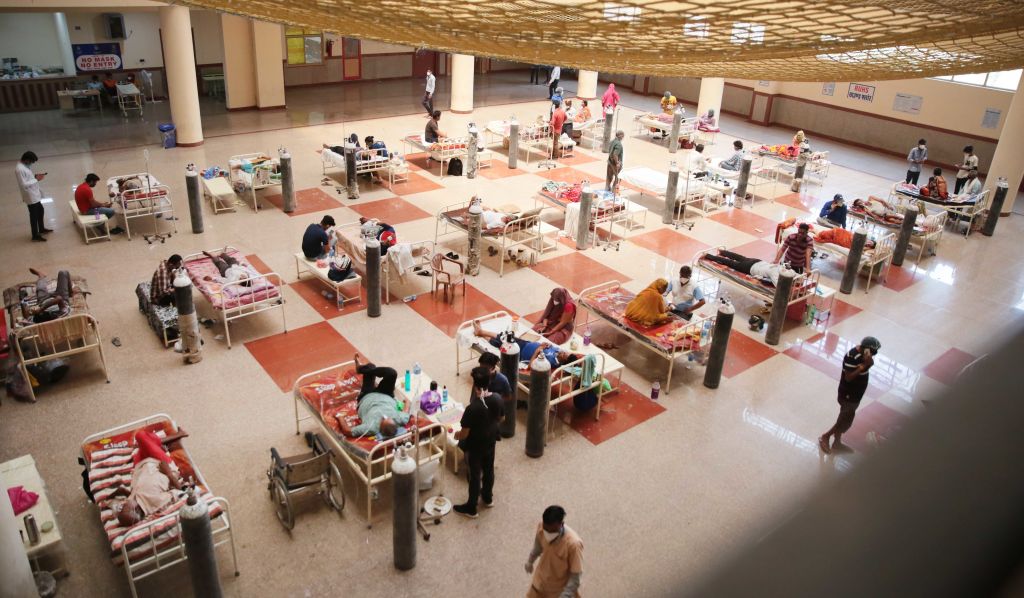Taramani Devi, 43, has been infected with coronavirus three times—and recovered from it three times—while battling kidney failure. The last time she was infected COVID-19, it was two days after she had undergone a surgery for a kidney transplant this past March, when her husband Gangadhar Singh donated a kidney to his wife.
“I just looked at Corona as a fever which I would be able to overcome. I think positively and for ten years I have been battling renal failure so I thought this was easy,” Devi says.
Ten years after Devi’s kidneys started failing, she was advised to get a kidney transplant at the start of this year. As she readied for the operation in February 2021 at the Institute of Kidney Diseases and Research Centre (IKDRC) in the neighboring state of Gujarat, she tested positive for coronavirus two days prior to her operation. Delaying her procedure by a month, surgeons finally operated on her at the end of March. Devi developed a cough two days after her surgery and tested positive for COVID-19, again. The first time she tested positive for coronavirus was when she traveled to Jaipur for another kidney procedure this past November.
Hasmita Patel, 42, another patient battling kidney failure, says, “Women have to be stronger since they have to deal with illnesses but still do housework. One can’t escape as a woman. Men have it easier than women, even when it comes to illnesses.”
Both her sister-in-law and her sister have supported Devi at home and in raising her now 19-year-old son and 23-year-old daughter. Even when women are not battling a deadly illness, they are the support system to people battling serious illnesses.
Maheshwari Parmar, 52, still drives her husband to and from his dialysis treatment twice a week even though the pair have tested positive for coronavirus in late April. Though they are supposed to quarantine at home, Mahendra still needs to be seen by a doctor regularly for his treatment, she says. Mahendra often needs to be plugged to an oxygen cylinder whenever his oxygen levels go down due to pre-existing conditions. It’s been difficult to not only get the oxygen cylinder replaced and to also find hospital beds where her husband can get his treatment, she says, in the wake of the second COVID-19 surge.
“I am getting tired and feeling very weak, but since Mahendra needs dialysis I drive him to the hospital and back,” Parmar says. “I need to rest but am not able to get as much time as I need.”



